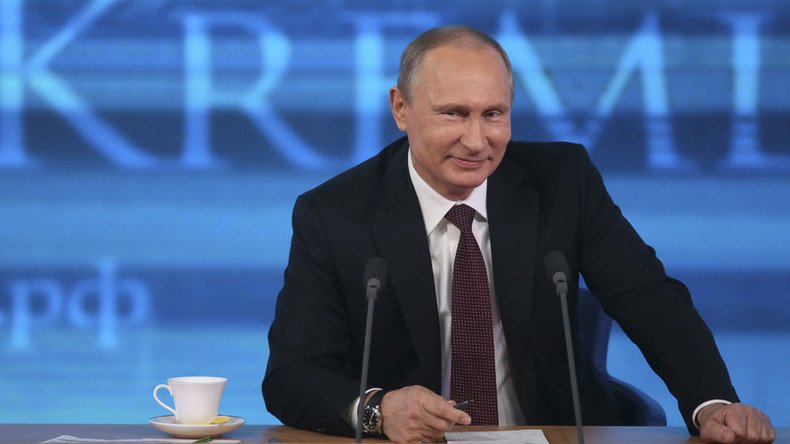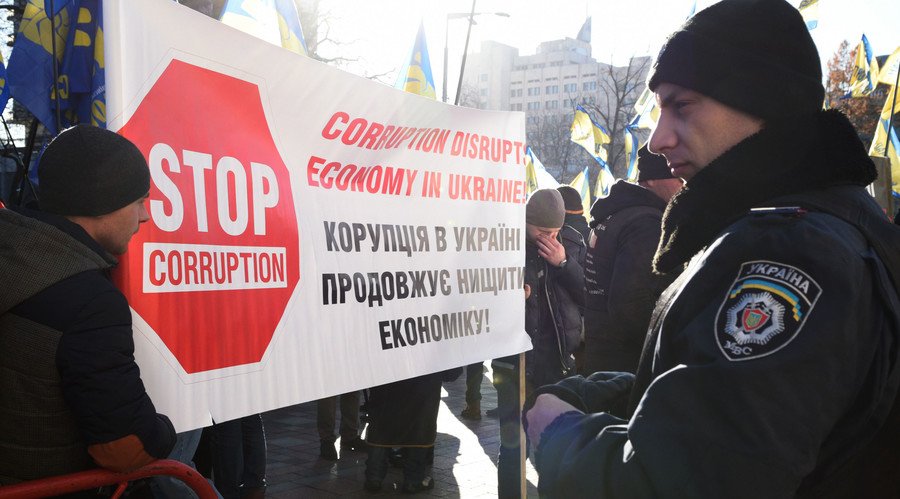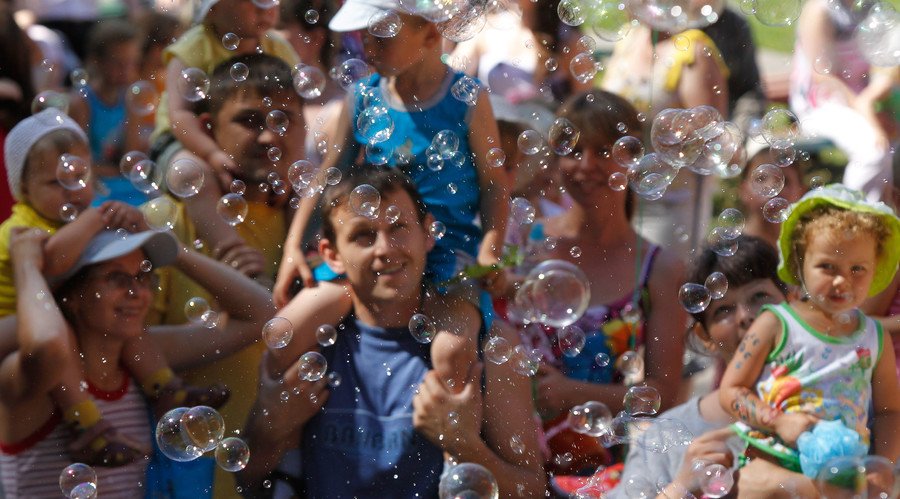‘I've seen Russia’s future and its name is probably Vladimir Putin’

Back in 1974, Jon Landau, a Rolling Stone critic famously said: “I saw rock and roll future and its name is Bruce Springsteen.” Soon afterwards, Landau took a gamble. He stopped writing and became Springsteen’s manager. A position he holds to this day.
For Russia and its President Vladimir Putin, Landau’s sentiments are often turned the opposite way. “I’ve seen the future and it’s NOT Russia/Putin.” All through the 1990s, there were myriad books and articles predicting Russia’s demise. In 1999, Anders Aslund, a Swedish employee of the Atlantic Council, a pro-NATO think tank, warned Russia was about to imminently collapse in an infamous Foreign Policy piece.
Ten years later, George Friedman of Stratfor (known as the “shadow” CIA) followed Aslund’s lead but suggested an early 2020s timeframe. Right now, entering 2016, Friedman’s prognosis seems way off.
In recent years, a collection of journalists and academics has forecast Putin’s political downfall. A hilariously inept effort was Ben Judah’s “Fragile Empire.” This tome suggested that “Russia fell in and out of love with Putin.” At the time of book’s publication, in 2013, Putin’s poll numbers “languished” somewhere north of 60 percent. Now, they are close to 90 percent.
Then there was Oliver Bullough’s “The Last Man in Russia”, a prognostication on how demographic despair, fueled by excessive alcohol consumption, will eventually extirpate Russia. This bout of tendentious crystal gazing doesn’t tally with Russia’s improving demographics. With a fertility rate of 1.71 (in 2013), Russia outpaces Japan, Germany, Italy and Canada in the old G8 and isn’t far off the UK, USA and France. Furthermore, Russia is the world’s second biggest immigration destination after the USA.
Luckily, both writers were able to review each other’s books in the media, blocking informed critical assessment. Here’s Judah praising Bullough in Standpoint and Bullough returning the favor to Judah in Literary Review and the Daily Telegraph. A friend in need is a friend indeed.
Always backing the wrong horse
In a bizarre anomaly, being hopelessly wrong on Russia doesn’t seem to derail careers in any sense. If a football pundit kept predicting that Bayern Munich would be relegated and they instead won the Bundesliga, that pundit's future would look bleak. Nevertheless, it appears that analysts can indulge in endless erroneous palmistry about Russia and suffer no consequences at all.
Of course, Russia’s biggest critics are liberals. For instance, Aslund’s contempt for Russia seems grounded in Moscow’s failure to fully complete ‘reforms’ he pushed in the 90s. In a horrid case of “Groundhog Day,” the Swede today advises the Ukraine government, which currently seems to be making precisely the same mistakes Boris Yeltsin’s Kremlin made in that misguided decade. The parallels are striking, hyper-corruption, civil disorder and the fire-sale of national assets to oligarchs and foreign investors. At the same time as the social state collapses and health and education services become mired in ever-increasing malfeasance, Western governments and think tanks support the radicals as “progressive.” For Russians, it’s familiarity to the point of deja vu. “I went to bed in Kiev in 2014 and woke up in Moscow in 1993,” as a long-time ex-USSR watcher recently said over a pint.

So why do the liberals, who dominate Western discourse, hate Russia so much? The answer to this is perfectly simple. Look around Europe and North America, and it’s pretty clear that the governing elite doesn’t really reflect the opinions of the majority of the population. A visit to any provincial English or French town would prove that quickly. It’s also interesting that Angela Merkel’s warm welcome for migrants isn’t reflected by any of the German people I know, except for a few in Berlin (who incidentally aren’t net tax payers).
After decades of centrist domination, this demonstrates why the neoliberal establishment is so panicked about the sudden emergence of renegade political forces across the Western world. Think Britain’s Jeremy Corbyn, France’s Marine Le Pen, Spain’s Podemos, America’s Donald Trump and Bernie Sanders, Greece’s Syriza and Italy’s Beppe Grillo. Poland’s new government has the Economist - long an unconditional lover of the country - in a frenzy of exasperation.
Russia beat all these countries to it. All through the 1980s and 1990s, liberal “reformers”, led by Mikhail Gorbachev and Boris Yeltsin foisted dramatic change on the country. The results weren’t bathed in glory as living standards collapsed and social cohesion broke down. Putin seemed to sense this and introduced what some commentators have described as “illiberal democracy.” That said, Putin remains more liberal than the vast majority of the Russian population and some of his associates (Dmitry Medvedev and German Gref spring to mind) would be considered Westernizers.
The people have spoken
As Matthew Dal Santo pointed out in a wonderful recent Lowy Interpreter piece (a must read): “Since 1996, the Levada Centre has been asking Russians what they want of their presidents. Their expectations have changed little. In 2012 (that is, even before the outbreak of the Ukraine crisis), Russians' top four priorities were: restoring Russia's great-power status (57% versus 54% in 1996); law and order (52% versus 58%); a fairer distribution of the national wealth (49% versus 37%); and increasing the state's role in the economy (37%, unchanged),” he wrote.
“Such attitudes reflect continuing nostalgia for elements of the Soviet system and dissatisfaction with the Westernising path followed after the USSR's collapse. In 2012, only a minority (16 percent up from 13 percent in 1996) believed Russia should continue to pursue the liberal reforms of the Yeltsin era and even fewer (5 percent down from 6) thought convergence with the West something to be desired. Today, however, 70 percent of Russians say they're proud of their country, whereas less than half did so a decade ago. Significantly, since 2014, 68 percent of Russians believe their country to have regained great power status,” Dal Santo concluded.
Interestingly, in 2004, the oligarch Mikhail Khodorkovsky, now a self-appointed “opposition leader,” wrote: “Putin is probably neither a liberal nor a democrat, but he is still more liberal and democratic than 70 percent of our country's population.”
The fact that Western analysts consistently fail to grasp this is explained in what a Russian diplomat once told me: "Western reporters and academics in Moscow only talk to Russians who speak English. Russians who speak fluent English are maybe 50 percent liberal. Russians who don't speak English are maybe five percent liberal. The fact is the second group is 20 times bigger than the first group. This is why coverage of Russia in Europe is so out of step with the reality on the ground. If these guys really wanted to understand Russia, they’d go live with a family in Barnaul for a year and stay well away from ‘Hipster’ bars in Moscow.”

Dmitri Trenin, director of the Carnegie Moscow Centre and a widely respected expert, criticized Russian liberals by saying they “have the same problem the revolutionaries have always had in Russia: they look down on the rest of the country as dupes.”
Since Putin returned to the president’s office in 2012, there’s been a campaign in the Western media to demonize him as much as possible. Many editors and correspondents seem to be under some illusion that if Putin was to resign or be ousted tomorrow, that a more favorable (to western interests) figure would take his place. A Kremlin suspicion has been that American NGOs were preparing for such a “regime change.”
Be careful what you wish for
However, the reality is that Putin’s successor would probably be considerably more unbending than the man they constantly deride. Well-placed Moscow sources suggest that Dmitry Rogozin or Sergey Ivanov would be next-in-line if the current president exited without much warning. Ivanov, an outwardly urbane English speaker, is considered the leader of the Silovik faction in the Kremlin, a group of officials with backgrounds in the state security services. Rogozin, a former leader of Rodina (a nationalist party), last year described the sale of Alaska (in 1867) as a “betrayal of Russian power status” and claimed that Russia had the “right to reclaim our lost colonies.”
Putin’s 2015 has been a mixed bag. His surprise intervention in Syria helped to smooth relations with some Western countries - most notably France - that had been seriously damaged over Ukraine. There are also indications that EU anti-Russia sanctions may end in 2016, possibly as soon as March. Kiev's predicable self-immolation has made some EU countries weary of continued support, aside from the mutual economic damage the embargoes have caused. American and British attempts to isolate Russia were stillborn and the Obama administration has dramatically changed tack, with John Kerry and the US president intensively engaged with their Russian counterparts recently.
Still, Russia has numerous problems. Thanks to low resource prices and the government's repeated failure to adapt the domestic economic model, the country is in deep recession. For the first time since the 1998 crash, living standards seem set for a sustained plunge. Meanwhile, social friction has emerged in pockets, the recent truck drivers protests being an example. With a few million people forecast to fall out of the middle class in 2016, the situation could get worse before it gets better.
Nevertheless, Russia is not about to collapse any time soon. Predictions along those lines only serve to make their authors look stupid. With sky-high approval ratings, allied to a lack of any realistic opposition candidate, the president’s job also looks fairly secure in the short-to-medium term. To paraphrase Landau, I’ve seen Russia’s future and its name is probably Vladimir Putin.
The statements, views and opinions expressed in this column are solely those of the author and do not necessarily represent those of RT.













